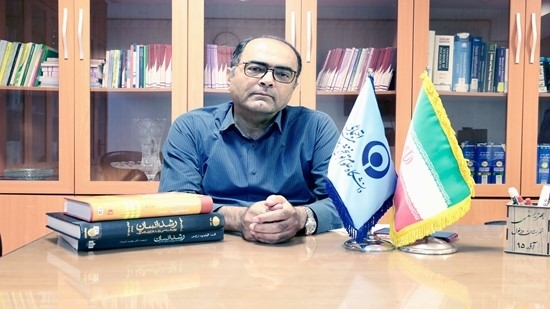Mental health literacy in crises: the media should be a bridge for communication and constructive information

Mental health literacy in crises: the media should be a bridge for communication and constructive information
A faculty member from the Counseling Department of the University of Social Welfare and Rehabilitation Sciences emphasizes that mental health literacy in society and the vital role of media—as one of the most powerful communication tools—are undeniable in times of crisis and can significantly influence better management of these conditions.
According to the report by the university’s newsroom, Dr. Bahman Bahmani, a faculty member in the Counseling Department of the University of Social Welfare and Rehabilitation Sciences, referring to the global mental health day slogan “Access to mental health services in crises and emergencies” and highlighting the day-long slogan “Mental health literacy and media narratives in crisis,” stated: Mental health literacy in society and the role that media, as one of the most powerful communication tools, play during a crisis are undeniable.
He noted that mental health literacy is a multi-faceted concept, extending beyond merely knowing disease definitions. This literacy includes an individual's ability to identify, understand, and respond appropriately to mental health problems in themselves and others.
Continuing, Dr. Bahmani highlighted the importance of mental health literacy in both normal and crisis conditions. He said: In ordinary times, people can detect their problems promptly and prevent chronic stress from developing into clinical disorders. But during a crisis, the importance of this literacy increases exponentially. When a society is literate about mental health, it can better absorb the initial shock of the crisis, experience less confusion, and its support networks function more effectively. Conversely, a lack of this literacy can lead to personal isolation, an increase in harmful self-medication, and delays in seeking professional help.
Direct link between crises and the system for psychological survival and safety This university faculty member, emphasizing the impact of crises—especially unpredictable, out-of-control, and life-threatening or socially destabilizing crises—stated: Such crises are directly connected to the system of psychological survival and safety of individuals; including acute stress responses, trauma, generalized anxiety, and a sense of losing control. Additionally, in long-term crises like pandemics, psychological fatigue among frontline teams and caregivers becomes evident.
Media, a dual role in crises. Dr. Bahmani, referring to the role of the media during crises, said: In the information age, media—especially social media—perform a dual role. On one hand, they are vital sources of information; on the other hand, they can be a source of stress and anxiety. Inadequate coverage of crises poses serious risks and often occurs through psychological vulnerability resulting from viewing or indirect exposure to negative news.
He emphasized: The ethical and professional duty of the media in facing crises goes beyond mere reporting. They should act as bridges of communication and repositories of constructive information. The media must learn how to report without re-traumatizing victims. Practices such as refraining from publishing violent or unnecessarily distressing images, focusing on human stories rather than shocking scenes, using precise language, avoiding sensational terms and dangerous generalizations, preserving the dignity of individuals, obtaining informed consent, and protecting the identity of the injured should always be considered.
Focusing on constructive responses rather than disaster occurrence, this university professor stated: The media’s key role should be to demonstrate how crises can be confronted. This requires shifting media focus from the occurrence of disasters to constructive community responses.
He added: Crises inherently activate the human nervous system and thrust individuals into a survival mode. The goal of psychologists and counselors in such situations is to manage the response and restore the person to balance. Employing adaptive coping skills and other psychological techniques influences an individual’s perception and alters the mode of engagement, allowing the person to return to psychological equilibrium through mental management.
Education before crises, a societal necessity. Finally, Dr. Bahmani, given the country’s exposure to natural disasters, called for educating students in how to face incidents and calamities and said: Pre-crisis education for various segments of society, especially within university environments, helps students become crisis intervention ambassadors and respond naturally when faced with natural disasters.


نظر دهید